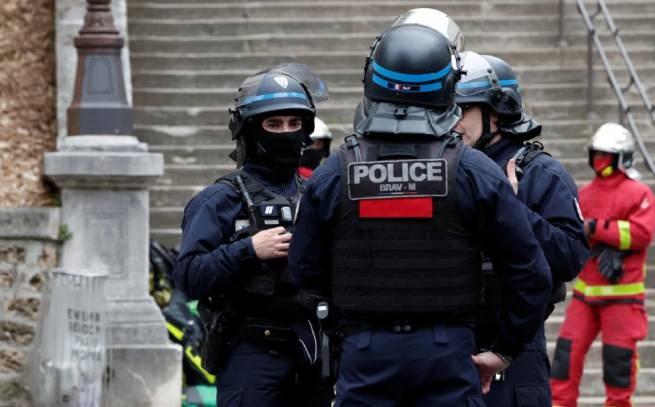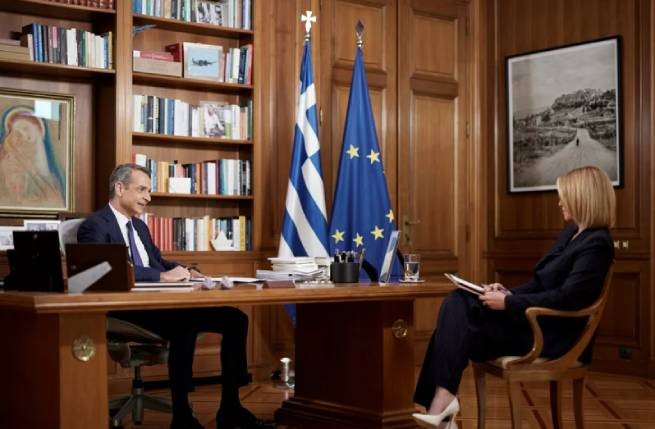Historian Alexander Fridman explains why there are so many Russian-speaking “Bucha deniers” even among those who have lived in the West for a long time.
On the pages DW Alexander Fridman expresses his opinion on whether it is possible to get through to those who continue to believe in propaganda. He believes that, most likely, during the war it will not be possible to change their way of thinking.
In April 2022, Europe has a new “place of memory”: in the Ukrainian city Bucha near Kiev, more than three hundred civilians became victims of Russian troops, according to Ukrainian data. The world has yet to learn the whole truth about the events that took place there, but it is already known today that a crime took place in Europe that seemed impossible in the 21st century and recalls the tragic pages of the history of the 20th century.
In the first days of April, the media was filled with photos and videos from the scene, which were widely discussed. The politicians were making loud statementsthreatened with unprecedented sanctions and promised support to Ukraine. Against this background, a pro-Russian rally involving about 900 people.
Officially, the protest was directed against the “discrimination” of the Russian-speaking population in Germany because of the war in Ukraine. In fact, it was an action in support of the Russian president and his “special operation”. This action caused an uproar in Germany and beyond. The Ukrainian ambassador to Germany Andriy Melnyk called it a “shameful motor rally”, and the German press began to use this term in all publications. Involuntarily, the historian writes, several questions arise at once:
“Participants of the Berlin motor rally under Russian and Soviet flags didn’t notice the massacre in Bucha? Didn’t want to notice it? “Staging”, and then completely turned upside down, declaring Ukrainians as criminals and murderers, and Russian military personnel and the Russian state as “victims of a vile provocation”?
In search of an answer to them, journalists from German publications talked to the participants of the motor rally. Their answers contain a wide range of reactions: from ignorance and denial to relaying the Russian propaganda narrative.
A variety of people took part in the pro-Russian action: men and women of all ages, sometimes with children; natives of Germany sympathetic to Putin without “Russian roots”; immigrants not only from Russia, but also from other republics of the former USSR. For many decades, the latter have been living in Germany, they learn about what is happening in their homeland with the help of the media, and their knowledge of the Russian language sometimes leaves much to be desired.
They spent a significant part of their lives in democratic Germany, where overcoming and studying the Nazi past is a daily routine. But the values of the fundamental law of Germany have passed by their consciousness, they are attracted by the regime of Vladimir Putin, which unleashed a bloody war in Europe. And since these people, more than a month after the start of the war, despite the horrors of Bucha, Kharkov, Chernigov and Mariupol, remain loyal to Putin, then what can be expected from supporters of the war in Belarus and Russia, who do not have wide access to objective information . Who have been living for decades under a tough dictatorship and propaganda.
The “shameful car race” in Berlin is far from a special case. It reflects a phenomenon that is widespread in Russia and observed beyond its borders. Taking advantage of the absence of a democratic culture among a significant part of the population, Russian propagandists have succeeded in spreading conspiracy theories, radical anti-Ukrainian and anti-Western narratives. The result is a dehumanization of their audience. Under the influence of this propaganda is a certain part of the population of Belarus, as well as part of the Russian-speaking population of Western countries.
Admiration for Putin, exaltation of Russia and the perception of the “collective West” as a “sworn enemy” have become part of the identity and the basis of the worldview of tens of millions of people. Unprecedented sanctions and international isolation have led to the consolidation of a society that feels threatened from outside. It considers itself a potential victim of the West, remaining indifferent to the suffering of Ukraine.
An unbiased analysis of photos and videos from Bucha poses a threat to this view of the world, it forces us to look for answers to questions that are unpleasant for many: how can one support the Russian war against Ukraine after what happened near Kiev? What “denazification” was carried out by Russian servicemen in Bucha? And who, after all this, are the “denazifiers” themselves? However, these questions can be brushed aside. Buchu can be imagined as the violence inevitable in war, signing his own moral bankruptcy. But by no means all the supporters of the “special operation” are ready to go for such a radical option.
There is another way out, much simpler: continue to believe in propaganda, which always has simple answers to the most difficult questions. As, for example, the Permanent Representative of Russia to the UN. Vasily Nebenzya believes that the very idea that “the Russian military were capable of such a thing” is unacceptable.
Is it possible to reach out to Buchi deniers and change their way of thinking? During the war, most likely not. Historical experience suggests that it will take decades to understand and comprehend the tragedy. For example, in Turkey, the denial of the Armenian genocide during the First World War is part of the state ideology, Holocaust deniers are found in all countries of the world, and in Russia, the whitewashing of Stalinism has become a daily routine. Yes, and in Serbia there are still quite a few people who do not recognize and even justify the execution of 8,000 civilians in Bosnian Srebrenica in July 1995. Unfortunately, now is the time for Buchi deniers.
Author: Alexander Friedman, historian, Associate Fellow of the Humboldt University of Berlin.
Deutsche Welle warns that the opinion of the author may not coincide with the opinion of the editors. The Athens News also warns that this article is the opinion of the historian Alexander Fridman, which may not coincide with the opinion of the editors.






More Stories
Poll: which European countries are ready to defend their homeland to the last
K. Mitsotakis announced readiness for the fire season
Greece must transfer the Patriot PAC-3 system to Ukraine with US “guarantees” against the Turkish threat